2025/10/07 Chung Shan Medical University STEAM Education Summer Inquiry Camp Concludes Successfully
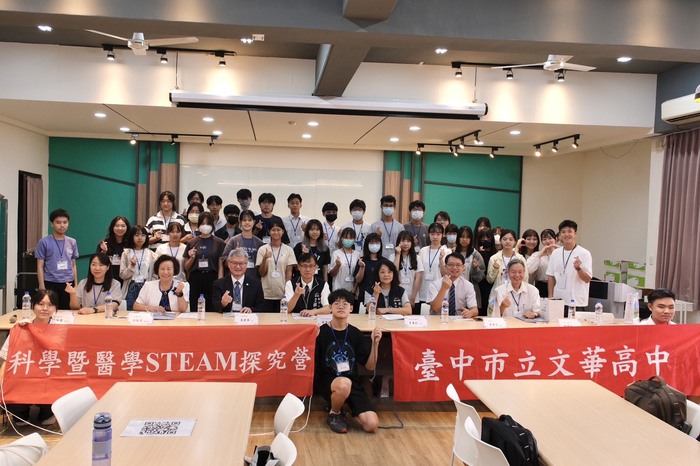
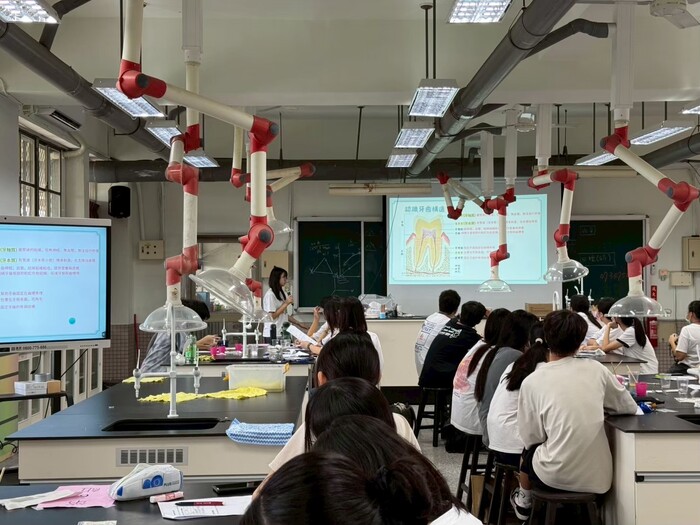
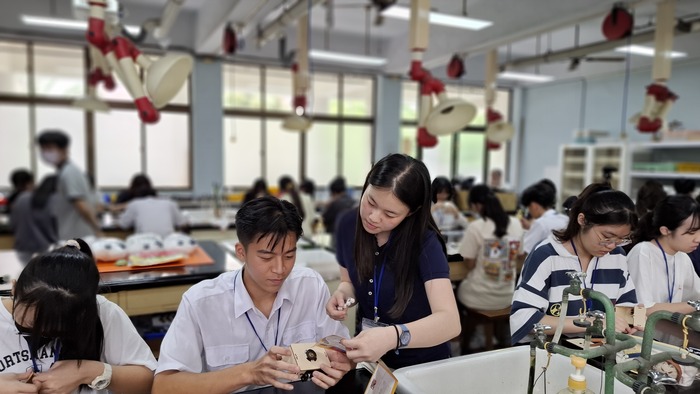
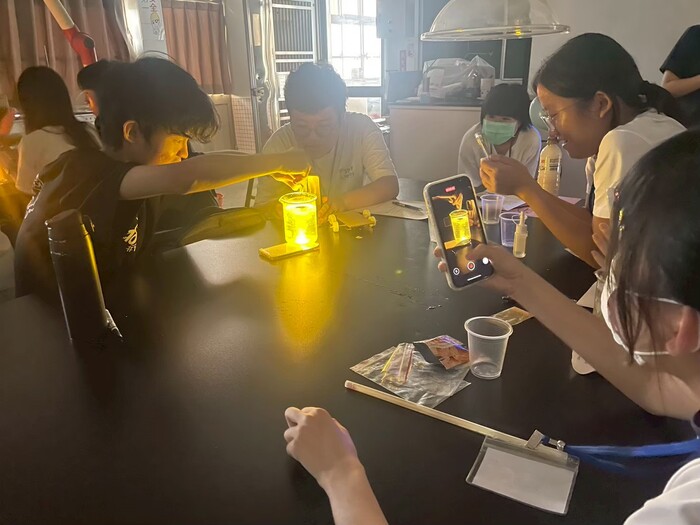
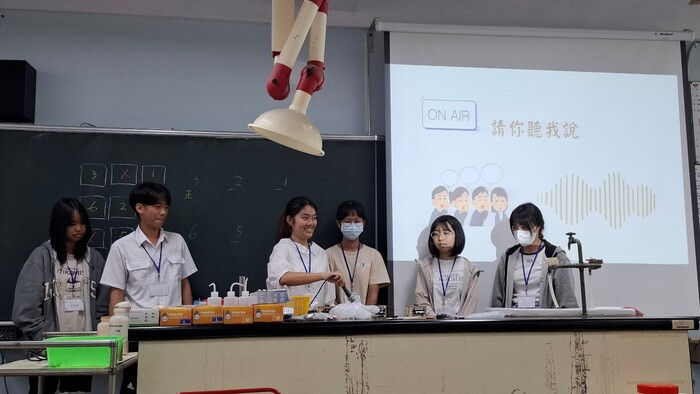
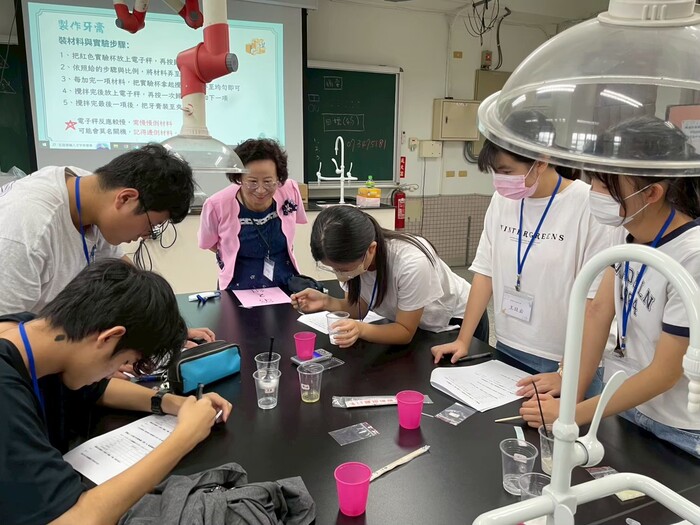
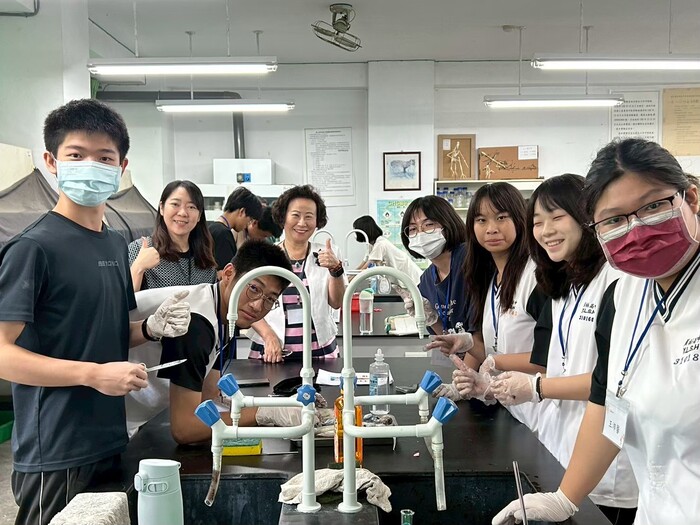
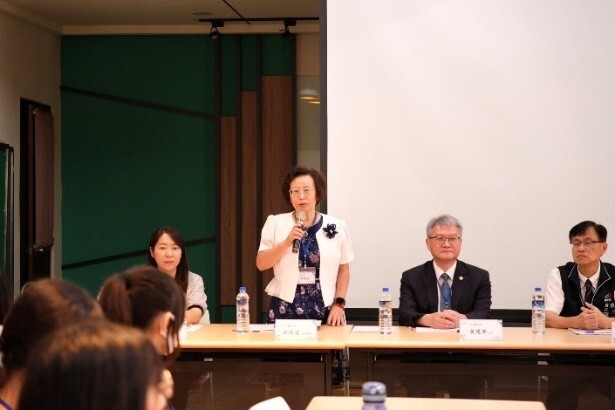
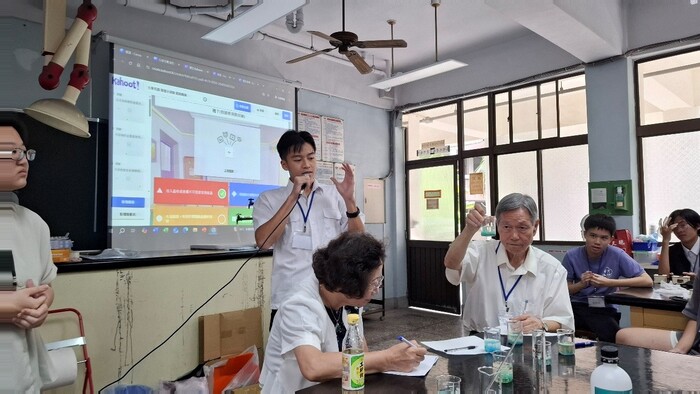
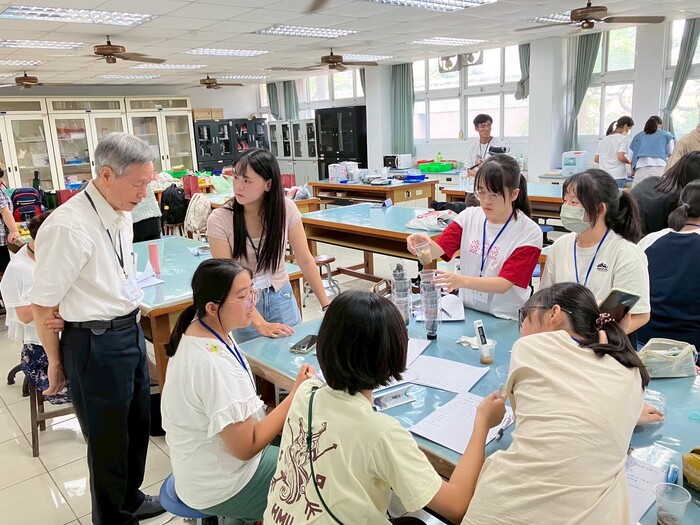
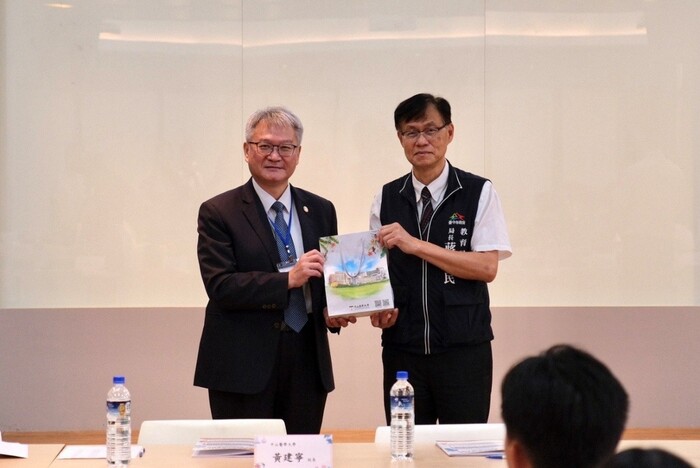
Science and Medical Volunteers Turn Dreams into Reality
Jointly organized by the General Education Center of Chung Shan Medical University (CSMU) and Kaohsiung Medical University (KMU), the 2025 Science and Medical STEAM Education Inquiry Camp concluded successfully this summer. With the support and sponsorship of the K-12 Education Administration, Ministry of Education, as well as the Kaohsiung City Government Education Bureau and Taichung City Government Education Bureau, the program brought together nearly 50 passionate student volunteers from CSMU and KMU. Beginning in spring, these volunteers completed over 40 hours of professional training and course design practice before leading four camp sessions held between July and August in Kaohsiung, Yuanlin, and Taichung. A total of 165 high school students from central and southern Taiwan participated enthusiastically, with each session reaching full capacity soon after registration opened.
The camps were held at Kaohsiung Municipal Sanmin Senior High School, Kaohsiung Municipal Kaohsiung Girls’ Senior High School, Changhua County Yuanlin Senior High School, and Taichung Municipal Wen-Hua Senior High School. Local education officials and school representatives attended each opening ceremony.
At the Wen-Hua High School session, Taichung City Education Bureau Director General Chiang Wei-Min commended CSMU for its long-standing dedication to fulfilling university social responsibility (USR) and its outstanding achievements in promoting the popularization of medical education. He emphasized that the city’s STEAM education initiatives align closely with CSMU’s vision, exemplifying how universities and local governments can collaborate to nurture future talent.
CSMU President Dr. Chien-Ning Huang highlighted in his address that by integrating “science” and “medicine” through STEAM education, CSMU enables its medical students to engage high school students in scientific inquiry and hands-on exploration of medical knowledge. He encouraged young learners to combine creative thinking with scientific approaches in their academic journeys, building a solid foundation for Taiwan’s future in medical technology and becoming a model of excellence in global medical education.
The camp was jointly designed by CSMU Distinguished Professor Jui-Erh Hung (General Education Center), National Sun Yat-sen University Distinguished Professor Huan-Hsiang Lin (Center for Liberal Education), and National Tsing Hua University Assistant Professor Shin-Hui Wang (Department of Education and Learning Technology). The three scholars emphasized that in today’s rapidly changing world, students must develop essential skills such as critical thinking, resilience, teamwork, and communication through interdisciplinary inquiry and hands-on learning. From volunteer selection to training and trial teaching, the program was rigorously structured to ensure both teaching quality and educational impact.
The four camp sessions were characterized by their “life-based and contextualized” learning design, with course themes spanning precision medicine, AI applications, anatomical simulation, environmental issues, and programming. These topics combined theory with practice to guide students in exploring the connections between science and medicine in everyday life.
In Kaohsiung, the sessions “Rerun of Medicine and Food” and “The Secret Behind Toothpaste” helped students understand the relationship between nutrition and oral health.
At Yuanlin High School, “Squid Game” and “Lego Pump” introduced students to anatomy and robotics design, offering a fun and interactive learning experience.
At Wen-Hua High School in Taichung, “Soundscape: Exploring Auditory Technology” and “Chemical Garden” used sound technology and chemistry experiments to inspire reflection on natural science and environmental sustainability.
Distinguished Professor Jui-Erh Hung of CSMU’s General Education Center expressed her deep appreciation for the volunteers’ passion, professionalism, and dedication to educational service. She noted that their contributions were the driving force behind the continued innovation and success of the STEAM camp. Prof. Hung also extended gratitude to the K-12 Education Administration and local education bureaus for their ongoing support, which enables universities to fulfill their social responsibility by extending medical education into schools and cultivating a new generation of creative, interdisciplinary thinkers.
From Kaohsiung to Yuanlin to Taichung, the 2025 STEAM Education Summer Inquiry Camp not only demonstrated collaboration between central and local governments but also symbolized the profound value of inter-university cooperation in science and medical education. Through inquiry and hands-on practice, participating students strengthened their problem-solving and creative thinking skills, injecting new vitality into the future of Taiwan’s science and medical development.